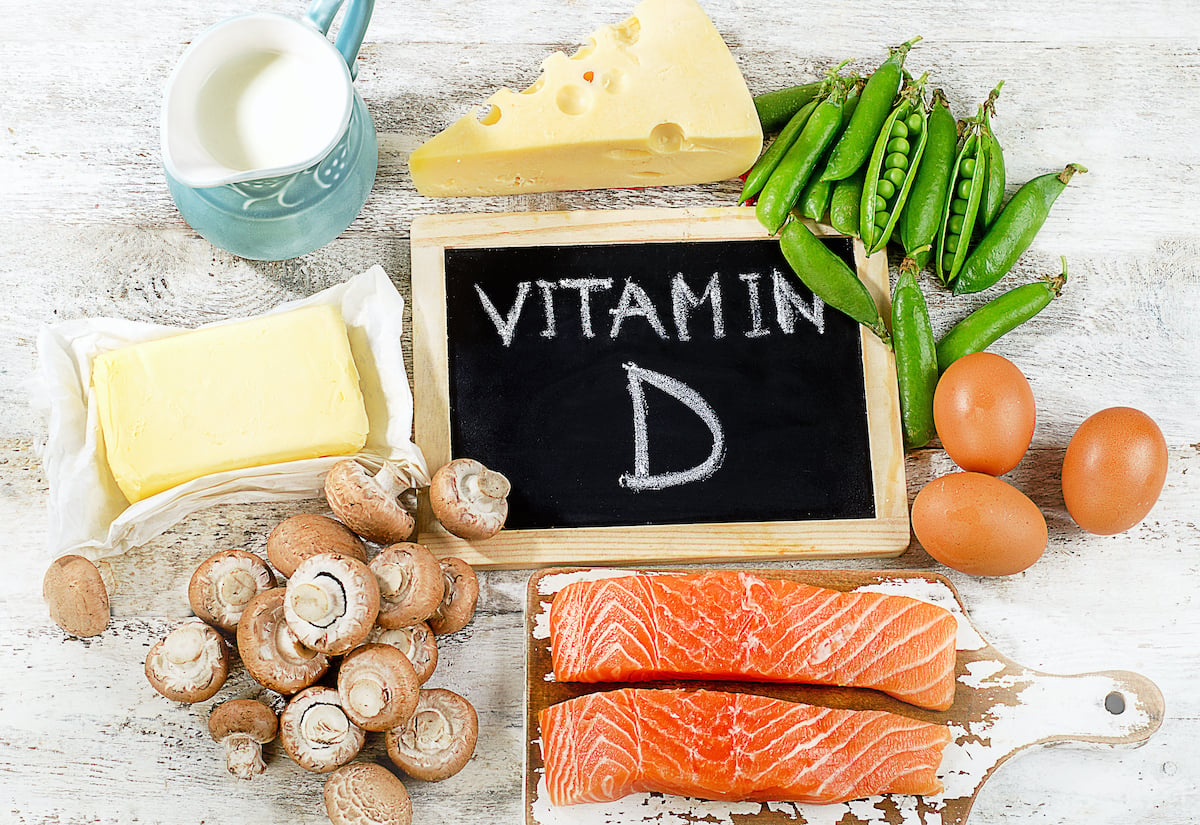Vitamin D and Cancer
4 min read

It’s likely you’ve heard that vitamin D is essential for building and maintaining healthy bones. But did you also know that Vitamin D is being researched extensively to understand its role in preventing some types of cancer, or reducing the likelihood of recurrence? Find out more about what the research is showing and what Dr. Hyun Sue Kim, one of our oncologists located at the Colorado Springs cancer center, tells patients about Vitamin D.
What is Vitamin D?
Vitamin D is the name given to a group of fat-soluble prohormones (substances that can turn into hormones) which aid the body in absorbing calcium and phosphorus— two minerals your body must have for strong teeth and bones. There are two major forms of vitamin D that are important to humans: vitamin D2, which is made naturally by plants, and vitamin D3, which is made naturally by the body when skin is exposed to ultraviolet (UV) radiation in sunlight.
Most people are unlikely to have high vitamin D intakes— but that doesn’t mean you should worry about not getting enough. Instead, keep in mind that excessive intake of any nutrient, including vitamin D, can cause toxic effects. Too much vitamin D can be harmful because it increases calcium levels, which can lead to calcinosis (the deposit of calcium salts in soft tissues, such as the kidneys, heart, or lungs) and hypercalcemia (high blood levels of calcium).
With that said, some groups — particularly people who are obese, who have dark skin, and who are older than age 65 — may have lower levels of vitamin D due to factors such as their diets or limited sun exposure.
If you have any concerns about vitamin D deficiency, talk with your doctor who can check the levels of this vitamin in your blood with a simple blood test.
The Connection Between Vitamin D and Cancer Remains an Ongoing Part of Research
At this time, the medical community hasn’t reached a collective agreement regarding the correlation between vitamin D and cancer. While some studies have found a link between vitamin D deficiency and increased risk for breast cancer as well as colon cancer and even non-Hodgkin’s lymphoma, others have found no connection at all. Recently, researchers published findings in the journal Endocrinology linking vitamin D deficiency with increased risk that breast cancer will spread outside the breast (metastasize).
Research is ongoing, although it is difficult to pinpoint a link between low vitamin D and the development of cancer, in part because levels of the vitamin change in the body and because dietary studies can’t quantify how much vitamin D people get from sunshine.

But Rocky Mountain Cancer Centers’ oncologist Hyun Sue Kim, MD, isn’t waiting for a definitive decision; she’s making sure her Colorado Springs breast cancer patients get plenty of the essential vitamin D, and of calcium.
“I’ve always been very aggressive about maintaining patients’ bone health,” Kim says. She carefully monitors vitamin D levels, because the association between low vitamin D and greater breast cancer risk is fairly well established. “We wish we knew the mechanism – we don’t yet –
but studies have shown people with good bone health have less breast cancer and have fewer recurrences of breast cancer,” Kim says.
She initially began checking vitamin D levels in her patients because the body needs it to deliver calcium to the bones. Her findings weren’t what she expected: Most patients’ calcium levels met recommended goals, but vitamin D deficiency was common. “We are closer to the sun because of our high altitude, so I was surprised when I checked vitamin D – only a few women were at recommended levels without supplements.”
The Institute of Medicine recommends 600 “international units” (also called IUs) per day of vitamin D up to age 70, and 800 units after age 70. Most supplements come in doses measured by international units.
“It’s not hard to surmise why so many women are deficient in vitamin D, which we primarily obtain from sun exposure,” Kim says. “We are mostly indoors now. Few of us work outside. And even if we are outdoors, we put on so much sunscreen, we aren’t getting vitamin D.”
Kim isn’t advising people to run out and bake themselves in the sun. There are plenty of other sources, such as fatty fish, fish oil, and milk and other dairy products that have been fortified with vitamin D. And, she recommends supplements. “I tell people to take 2000 to 5000 international units a day,” she says. While the link is still being researched, vitamin D might just be another weapon in the fight against cancer.
How to Get Vitamin D if You Need It
As mentioned earlier, most vitamin D can be obtained through sun exposure. However, too much sun exposure can put you at risk for skin cancer (so don’t plan on ditching the sunscreen anytime soon). Instead, consider these other tips that can help you maintain an adequate level of vitamin D:
- Include foods that are naturally rich with vitamin D in your diet.
- Drink liquids like milk, which is fortified with vitamin D (this includes soy and almond milk). Some other dairy products, orange juice, and cereal also can have vitamin D added. To be sure, take time to read labels.
- Consider taking vitamin D supplements if your levels are low. People ages 1 to 70 should get the recommended daily allowance (RDA) of 600 IU. Children younger than age 1 should get 400 IU and adults older than age 70 should get 800 IU. If you take a calcium supplement, you may already be getting added vitamin D. Many calcium supplements contain vitamin D.
Remember, not everyone needs to worry about their vitamin D intake levels. Therefore, taking high-dose supplements or getting your levels checked might not be needed. However, if you are concerned about your levels of vitamin D, check with your healthcare provider. If you are a cancer patient, talk to your oncologist about your calcium and Vitamin D levels and what you should do to keep them in the optimal range.